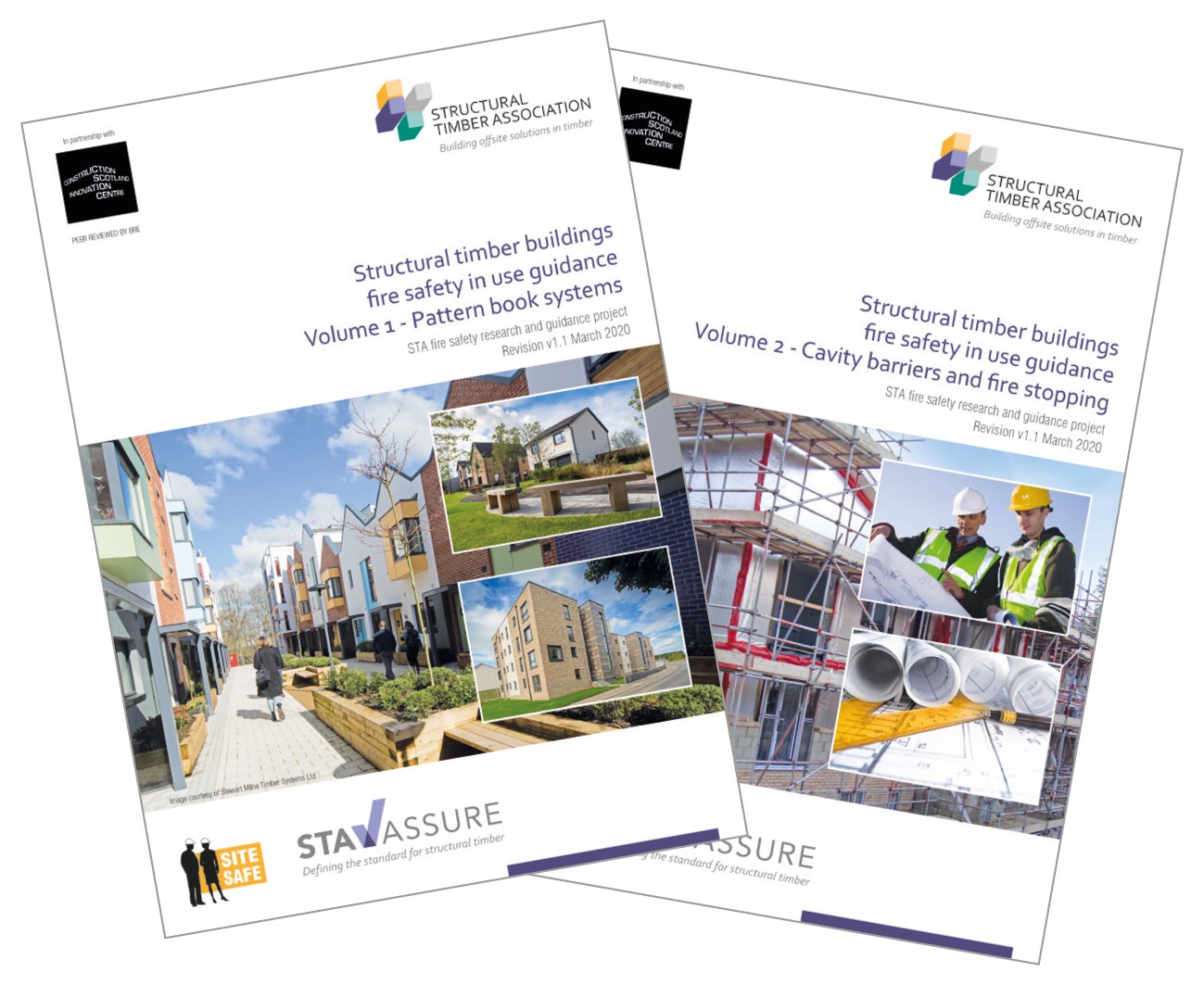New fire safety in use guidance issued for timber frame buildings
With an objective to enhance quality and drive product innovation through technical guidance and research, the Structural Timber Association (STA) has been collaborating with the Construction Scotland Innovation Centre (CSIC), the University of Edinburgh and BRE to produce fire safety in use guidance for timber frame buildings.

Timber frame construction is a traditional method of building with a proven track record of mainstream compliance and longevity. It is widely recognised as the offsite construction system of choice, offering many benefits, including low carbon, cost effective, quality, speed and regulatory compliance.
Fire safety in use affects all forms of construction. All buildings must be designed to comply with the functional protocols of the Building Regulations for fire safety requirements, as a minimum standard. The STA has invested in an industry leading fire in use research project to test and prove commonly used timber frame wall, floor and roof make ups used in the UK marketplace.
The output of this research, a pattern book of EN tested systems, is believed to be the first of its kind in the UK timber frame sector. The EN tested systems and best practice recommendations provide a comprehensive package of information, for the design, specification and construction of timber frame buildings. This research now forms part of the STA’s library of fire in use best practice guidance. The STA library of documentation provides comprehensive guidance, information and recommendations on system specifications and good practice principles when using timber frame construction.
The project was organised into four distinct, but connected work packages, running in parallel to gather the relevant data required for the pattern book.
- The first stage was the completion of research into various aspects of timber fire safety and testing
- The second stage was the completion of a large programme of full-scale fire EN fire resistance testing, including collaboration with the Irish Timber Frame Manufacturers’ Association (ITFMA), Engineered Wood Products Committee (EWPC) and Trussed Rafter Association (TRA) testing programmes
- The third stage was the collation of all research and test information, for analysis, peer review and validation by BRE, and the subsequent endorsement by verifiers and regulators
- The final stage was the creation of the pattern book
In addition to the extensive fire in use research of timber frame systems, it has been identified by the STA that the installation of fire stops and cavity barriers are of equal importance when it comes to building safety, an issue which prevails regardless of the building methodology. The STA have responded by developing a new guidance document on cavity barriers to complement the existing information.
This research, which has been supported by Swedish Wood and Scottish Forestry, has been endorsed by several industry and government stakeholders. The pattern book of systems provides a unique reference library of information for clients, specifiers and STA members to use with confidence.
The information will be regularly reviewed and updated by the STA Technical Committee and Board and the pattern book and guidance on fire stops and cavity barriers are free to download from the Structural Timber Association’s document library which can be found by visiting: www.structuraltimber.co.uk/links/research-documents.





















